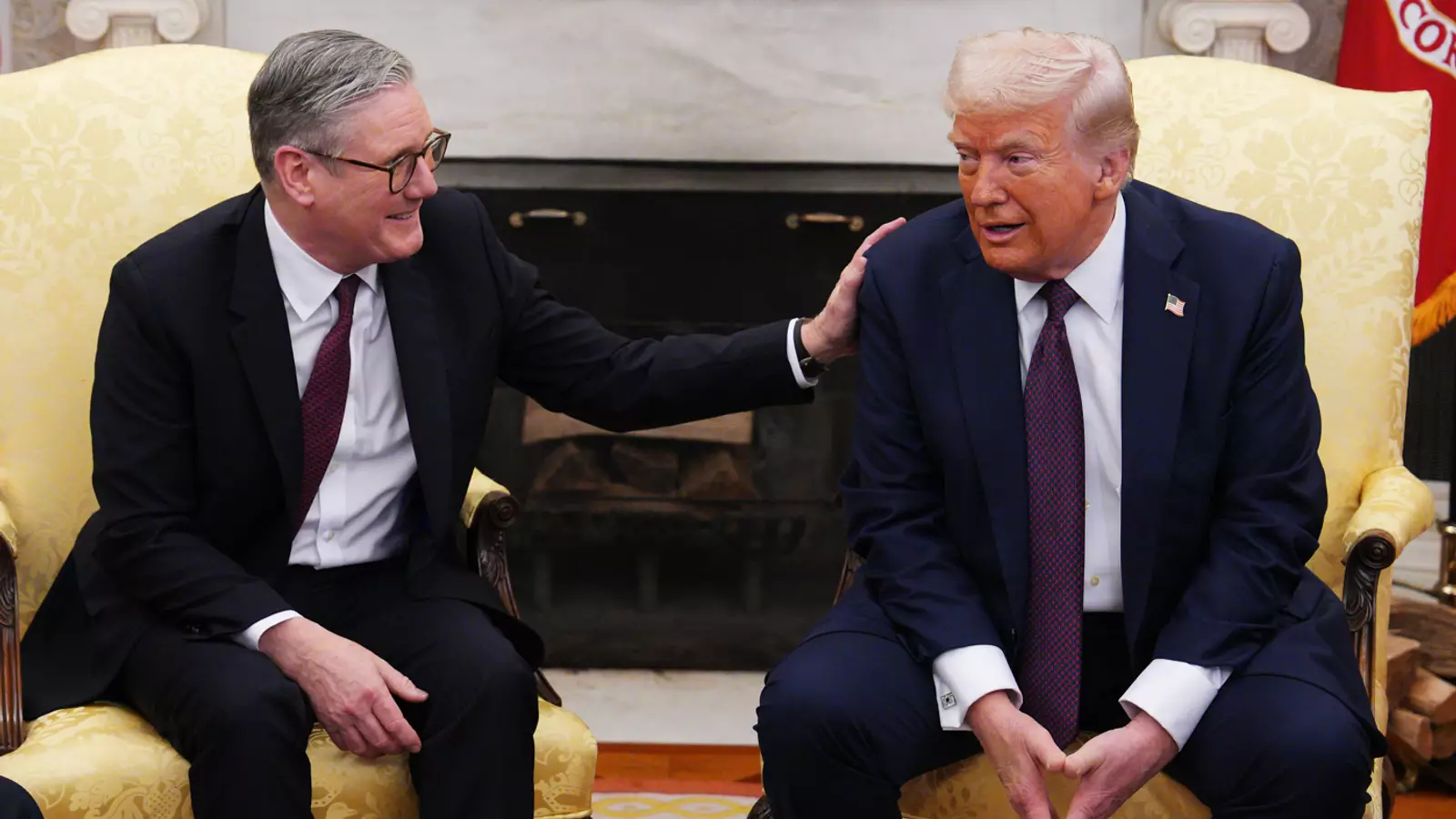In the dynamic and often unpredictable world of international trade, the UK finds itself teetering on the edge of a potential crisis. Following comments from Prime Minister Sir Keir Starmer regarding the ongoing trade negotiations with the United States, it has become painfully clear that trade relations are not just rocky—they’re on the verge of collapse. Starmer’s approach of seeking an economic deal while downplaying the likelihood of impending tariffs, which many see as inevitable, indicates a troubling undercurrent of denial. The so-called “liberation day” proclaimed by President Trump could be less about freedom and more about chaos, setting the stage for the UK’s economic challenges and potential retaliation.
A Knee-Jerk Response Versus a Strategic Plan
Starmer’s emphasis on avoiding a “knee-jerk” response to the looming tariffs is well-intentioned; however, it raises deeper concerns about the government’s proactive stance—or lack thereof. The phrase suggests that the administration may be preparing to accept tariffs as an unalterable fate rather than combating the toxic rhetoric and policies emanating from Washington. Will we simply absorb these blows, or are we ready to fight tooth and nail for fair treatment? While diplomacy is crucial, the implication that the UK must remain calm in the face of economic aggression comes off as a defeatist attitude. Instead of a collected approach, what Britain needs is a robust strategy to safeguard its economy against unnecessary harm.
The Economic Fallout: A Frightening Picture
Forecasts from the Office for Budget Responsibility make for grim reading: a 1% reduction in the UK economy due to a potential increase in tariffs can’t be dismissed lightly. Such statistics underscore the precarious balancing act the government must perform. A 25% levy on cars and car parts shows that this is not merely a threat on paper; tangible consequences are on the horizon. What’s shocking is the sheer speed at which these detrimental policies could unfold. One can’t help but wonder: why is the government seemingly caught off-guard? With a potential trade war looming, it seems like apathy may have taken the wheel, leaving the economy vulnerable to foreign whims.
Global Markets in Turmoil
As various stakeholders watch the situation unfold, global markets reflect the uncertainty and instability instigated by impending tariffs. The FTSE 100’s fluctuation mirrors the turbulence in British trade relations—a stark warning sign that investor confidence is wavering. The suggestion that these tariffs could further depress the British economy should send shivers down the spine of every concerned citizen and investor. Thus, what may appear as an isolated issue impacting a few sectors could snowball into a larger crisis, affecting the livelihoods of many Britons.
The Dangers of Retaliation
In a dangerous twist, British officials have hinted at the possibility of retaliatory tariffs if their American counterparts move forward with their plans. While some argue that retaliation is a legitimate response to unfair tariffs, it risks exacerbating an already tense situation. This could spiral into a full-blown trade war, with both countries suffering greatly. Instead of trading blows, why aren’t we exploring alternative pathways for resolution? The conversation needs to shift from tit-for-tat measures to constructive dialogues that prioritize stability over aggression.
Potential for Global Collaboration
In the face of this bleak reality, it’s essential for the UK to seek allies, both within Europe and beyond, in advocating for fair trade practices. There is strength in numbers, and the UK’s ongoing negotiations should not solely focus on appeasing the US but rather on building a more resilient network of trade partners. It’s time for leadership that recognizes the shared economic challenges faced globally and works proactively to forge agreements that benefit not only the UK but also its trade partners.
The looming tariffs present a complex challenge. A mere reaction will not suffice; it’s time for strategic, bold moves that prioritize the nation’s economic resilience. The stakes are high, and the old rules of trade seem no longer binding. As we look to the future, let’s hope for more than empty rhetoric and aspirations; let’s demand real action to safeguard our economy.

